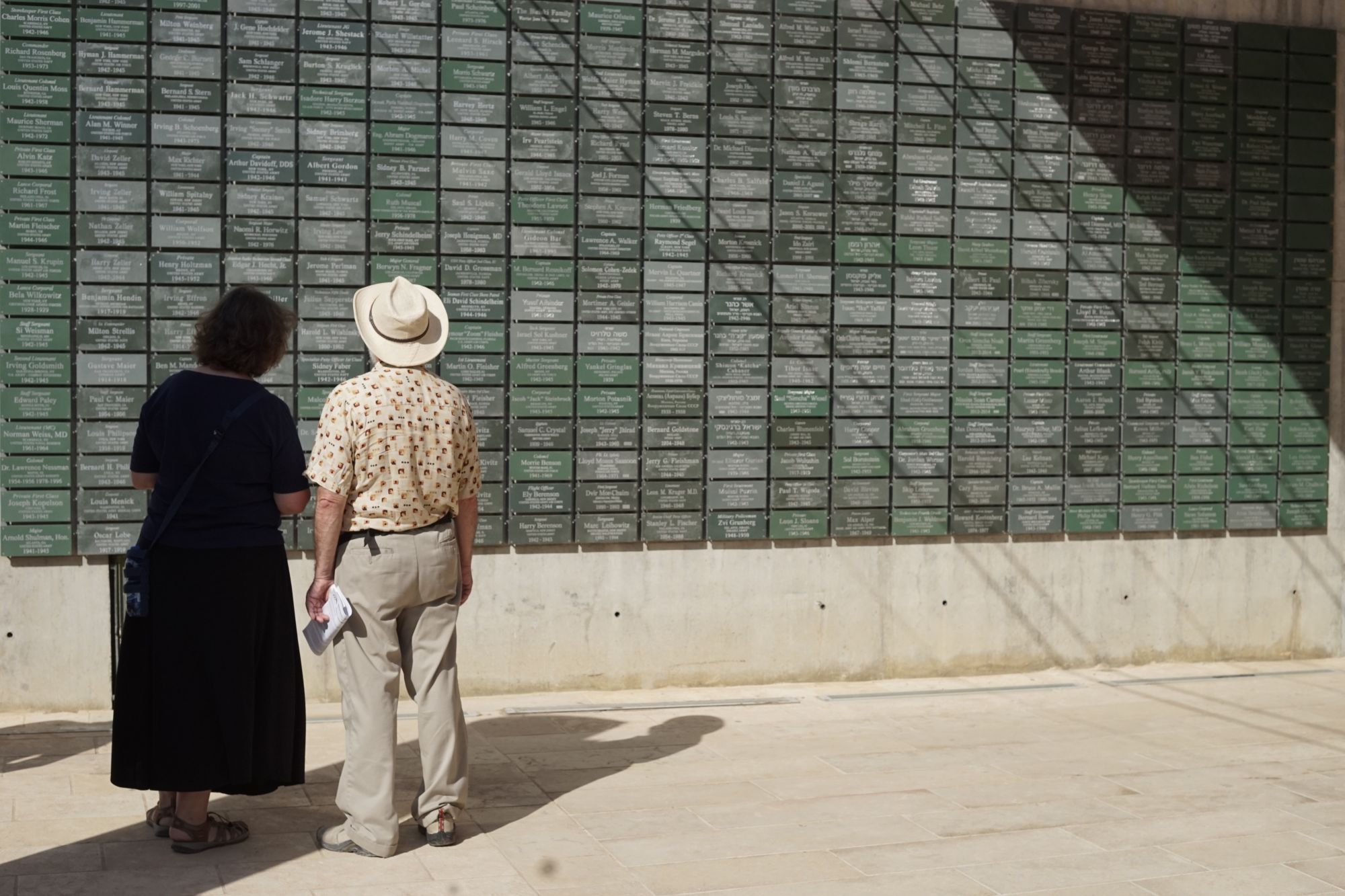By: Rachel Cohen

Photo Credit: Ammunition Hill
When children and grandchildren came to Ammunition Hill to commemorate the fallen and wounded of one of the bloodiest battles in Israeli history on a late January morning, they did not come bearing candles or tears of sorrow.
Instead, they came and planted flowers.
It is perhaps an odd choice given that 36 Israeli soldiers died on that site in the 11th hour of the 1967 Six-Day War, in what was essentially the pivotal battle that led to reunification of Jerusalem. But Alon Wald, head of operations of the Ammunition Hill Six-Day War Liberation & Reunification of Jerusalem Heritage Center, a Jewish National Fund (JNF-USA) supported site, found the act an apt one on many levels.
For one, it coincided with the Jewish holiday of Tu BiShvat—the New Year for Trees—which celebrates growth, renewal, and ecological awareness. It is a time when many Israelis plant trees and flowers to commemorate the holiday.
But on a more personal level, it gives Wald—who lost his father during the battle—a sense of closure.
"Today, working at Ammunition Hill does not just give me a sense of closure between me and my nation, but also between me and my father," Wald, whose father died serving as a combat engineer specialist in the IDF's elite paratrooper brigade, said.
"He literally paved the way into Ammunition Hill and met his death in its fields. His friends climbed over his body and made history," Wald said with a faraway smile.
With no father figure in his life, Wald was raised by his father's brothers-in-arms and felt it necessary to honor them and the families of the fallen.
"We decided to take all the bereaved families and liberators of Jerusalem and make something of our own. To do something nostalgic, intimate and in a way that we cherish their sacrifice in the way we see fit," Wald explained of the Tu BiShvat event.
"These men love Jerusalem more than anything else. They made history here. They feel the scars of the war until today. An event like this means a lot to them," Wald said of the surviving soldiers of the war.
He credits JNF's support in helping tell his father’s story and the story of so many others who died in the battle that changed the course of Israeli history. The IDF’s capture of Ammunition Hill is responsible for the return of Jerusalem’s holy sites to Israel, something that the country assumed would be forever in Jordanian control.
"’We're 80-years-old,’" Wald’s late father's friends told him. "’We won't be here tomorrow. Take the keys. Tell our stories.’"
So when Wald walks the grounds of Ammunition Hill, he is proud of what he and JNF were able to accomplish in a short period of time specifically, the newly opened museum, a commemoration hall, and an increase in visitors from 110,000 to 400,000 per year.
For Tamar Paikes, who lost her father in the Six-Day War, brother in Yom Kippur War, and another brother to a hiking accident after his army service, she has also found catharsis is storytelling.
"Even though I never met him, I can imagine my father running beside me," Paikes said of her father in Cardboard Squares, a movie she directed about her family's journey through loss.
Like Wald, through storytelling and unconditional support from family and friends, she is able to cope with her grief.
But Wald chooses to look forward and celebrate what Israel has accomplished. When he watches the children planting flowers, he believes the event serves as symbol for a strong, resilient Israel.
When the Six-Day War concluded, Israelis flocked to the streets to celebrate, but for Wald and the 182 other families of the fallen, feelings of jubilation were replaced and dominated by grief. In many ways, the flower planting ceremony was a postponed celebration of not only Israel's victory 50 years ago, but also for the Jewish people and one that can finally include the bereaved ones left behind.
"This symbolized more than anything that the roots are in the ground. We're talking about the future and the enduring spirit of Israel. They didn’t come here to cry or tell stories about the dead, but to look to the future and say, 'We are here,'" he said.
Resources to Plant Trees In Israel:
Plant a Memorial Tree in Israel
JNF Tree Certificates
Plant a Tree in Israel Bar or Bat Mitzvah Gift
The Sderot Tulip Support for Israel
